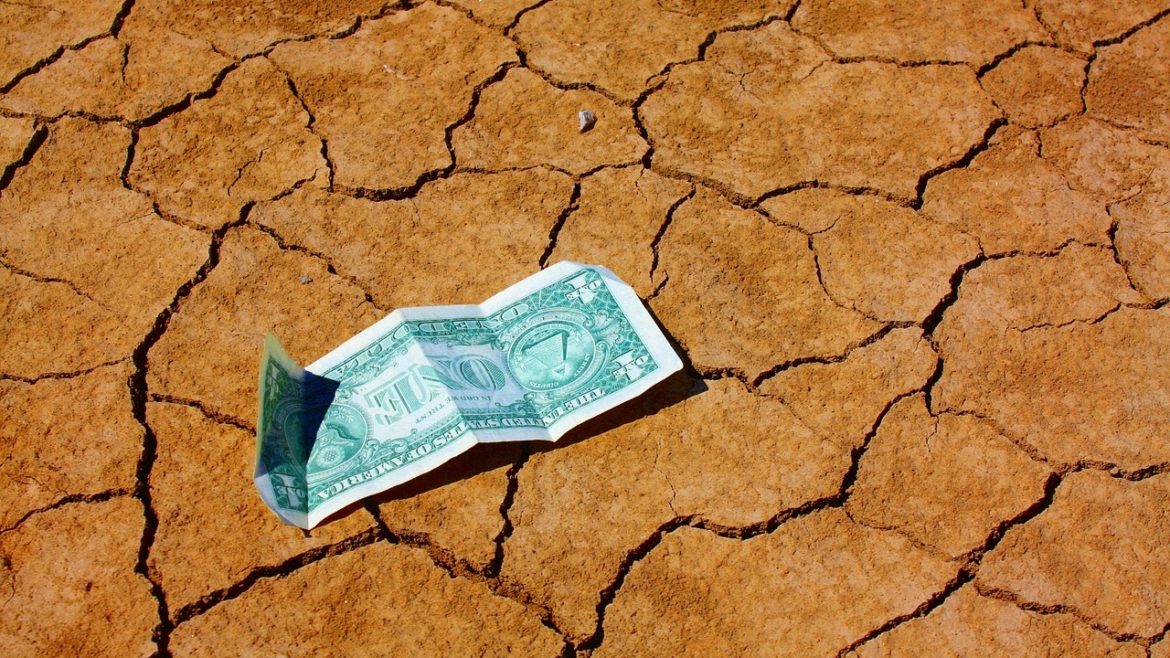Gold has all the potential to go unprecedentedly high. But silver will be gold on
Site:
Precious metals news
More bad news for the dollar.Last week, China and Brazil announced a trade deal in their own currencies, completely bypassing the dollar.This represents another small shift away from dollar dominance.
Based on the latest Commitments of Traders (COT) report, the latest price action is potentially even more bullish than normal. The latest price moves have been supported by Managed Money but the data clearly shows there is more driving the upward movement.Please note: the CoTs report was published 03/31/2023 for the period ending 03/28/2023. “Managed Money” and “Hedge Funds” are used interchangeably.
Investors are more than ever concerned about the stability of the U.S. and global banking system. While the Fed and central banks have calmed the markets by propping up failing banks temporarily, we saw both Gold & Silver Break Out of important levels today.
Emergence Of A Multipolar World And Rapid Dedollarization.
I’ll begin with what I believe to be the biggest risk that could be beneficial for gold prices: dedollarization. In last week’s commentary, I wrote about the end of the petrodollar and the possible emergence of a multipolar world, with U.S. on one side and China on the other.
The monthly graph shows a breakout above resistance on a close-only basis. The prior resistance is now support. A nearnear +5% term rally back to $2100 is expected. The stop is $1880. With the prior resistance now being support, and given the objective, we have a very favorable reward-risk situation.
Apr 3, 2023 - 12:50:31 PDT
Gold has returned 4800% (Annual 7.84%). S&P 500 has returned 4000% (Annual 7.45%)
As long as states are around, money will never be sound. But first, some clarity. Sound money, per Ludwig von Mises, has two aspects: It serves as a commonly accepted medium of exchange, while also making it difficult for governments to meddle with it.
Apr 3, 2023 - 11:49:05 PDT
Please consider the GDPNow Forecast for 2023 Q1 as of April 3, 2023...
Apr 3, 2023 - 11:47:49 PDT
Not only did the ISM Manfacturimng Report on New Business Order fall to 44.3, but price PAID also fell as The Fed hikes rates (yellow line) and slowing M2 Money growth (green line). Office REITs ar…
 Credit Suisse Collapsed Because of Government Intervention, Not Despite It
Credit Suisse Collapsed Because of Government Intervention, Not Despite ItApr 3, 2023 - 11:46:20 PDT
Credit Suisse, one of the fifty largest banks in the world, has joined the long list of Western banks over the past two decades that have been rescued from the brink of failure and subsequently acquired by a larger financial institution.
 Elizabeth Warren’s Contradictory Demands for Easy Money and Strict Financial Regulation
Elizabeth Warren’s Contradictory Demands for Easy Money and Strict Financial RegulationApr 3, 2023 - 11:45:27 PDT
As the financial ripples following the recent collapse of Silicon Valley Bank (SVB) continue to run through the financial sector, a predictable voice has weighed in on the affair, and, as always, giving bad advice.
It’s important to note that the $842 billion proposed price tag for the Pentagon next year will only be the beginning of what taxpayers will be asked to shell out in the name of “defense.”
Because his actions were so outrageous, perhaps it is impossible to satirize the former president of Zimbabwe, Robert Mugabe, but perhaps I can describe him.
Regulation failed to prevent bank failures, but the Treasury secretary wants more regulation.
“This is all about regulation and the fact that at some point in time there was great advocacy for making sure that the regional banks and the smaller banks didn't have to comply with some of the rules that perhaps would not have allowed them to get into this situation because there would've been st
The entire world monetary system can be summed up in just six letters: I.O.U. Y.O.U. (I OWE YOU..YOU!)
Record surge in sovereign gold buying by foreign central banks continues!
Apr 3, 2023 - 08:47:28 PDT
"The mismanagement was endogenous to the regulatory regime. Rather than promoting financial stability, regulators have undermined it. Doubling down on a failed strategy will not make things better." ~ Nicolas Cachanosky
Mohamed El-Erian, chief economic adviser at Allianz and Bloomberg Opinion columnist, says the worst of the recent turmoil in banking is over, but there are still warning signs. "We're going from liquidity to capital, and from financial contagion to economic contagion," El-Erian said in an interview on Bloomberg Television in Cernobbio, Italy.
Remember when banks were small? Those old enough to have a bank account in the 1970s should. Back then, most people did their banking with a locally owned institution, often the First National Bank of (Your Town).









